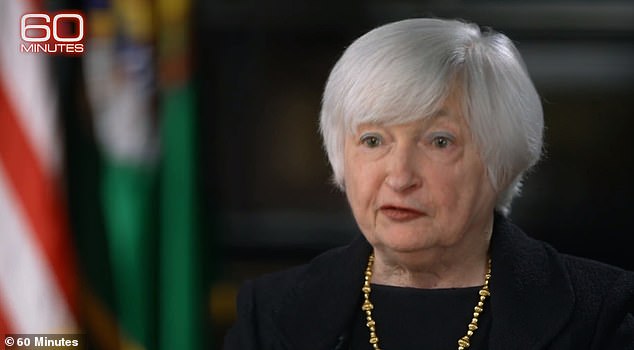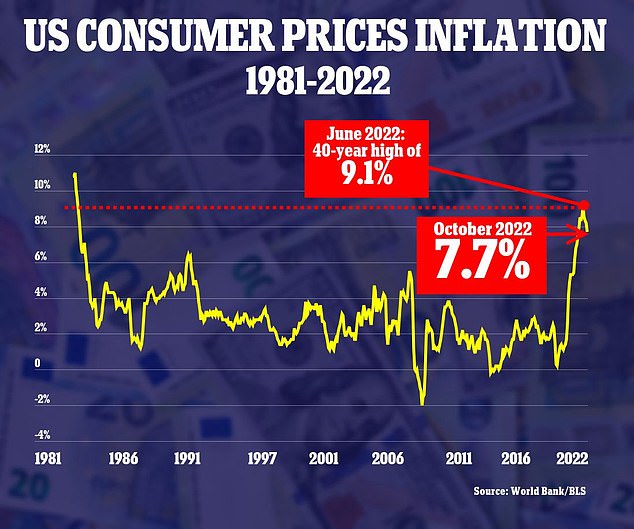
Treasury Secretary Janet Yellen predicted Sunday that inflation would notably ease by the end of next year but hinted there is still a chance of the economy falling into recession before then.
‘I believe by the end of next year you will see much lower inflation if there’s not … an unanticipated shock,’ Yellen told CBS 60 Minutes.
‘There’s a risk of a recession,’ Yellen added. ‘But it certainly isn’t, in my view, something that is necessary to bring inflation down.’
The Treasury secretary said that economic growth is ‘slowing substantially’ after the period of rapid economic growth that followed the Covid-19 pandemic.
‘Businesses see that. Look, we had a very rapid recovery from the pandemic. Economic growth was very high. And there was a surge in hiring, put people back to work,’ she said.
‘We got people back to work. We closed that gap. We have a healthy labor market. To bring down inflation and because almost everybody who wants a job has a job, growth has to slow.’
Yellen also noted that shipping costs have come down and delivery lags had been worked out, contributing to lower inflation.

‘I believe by the end of next year you will see much lower inflation if there’s not … an unanticipated shock,’ Yellen told CBS 60 Minutes




She said that she believes the nation’s prices can fall even while unemployment remains low.
‘I am very hopeful that the labor market will remain quite healthy so that people can feel good about their finances and their personal economic situation,’ Yellen said.
The Consumer Price Index (CPI) for November will be released on Tuesday. October prices were up 7.7 percent from last October, the lowest figure of any month since January.
But the Producer Price Index (PPI), which measures the costs of products before they hit the shelves, ticked up in November by 0.3 percent, to a 7.4 percent rise year-over-year.
The Federal Reserve is expected to raise rates by half a percentage point on Wednesday, following a series of four jumbo rate hikes.
Fed officials lifted their benchmark rate by 75 basis points on November 2 to a range between 3.75 and 4 percent. They had held the rate to near-zero until March.